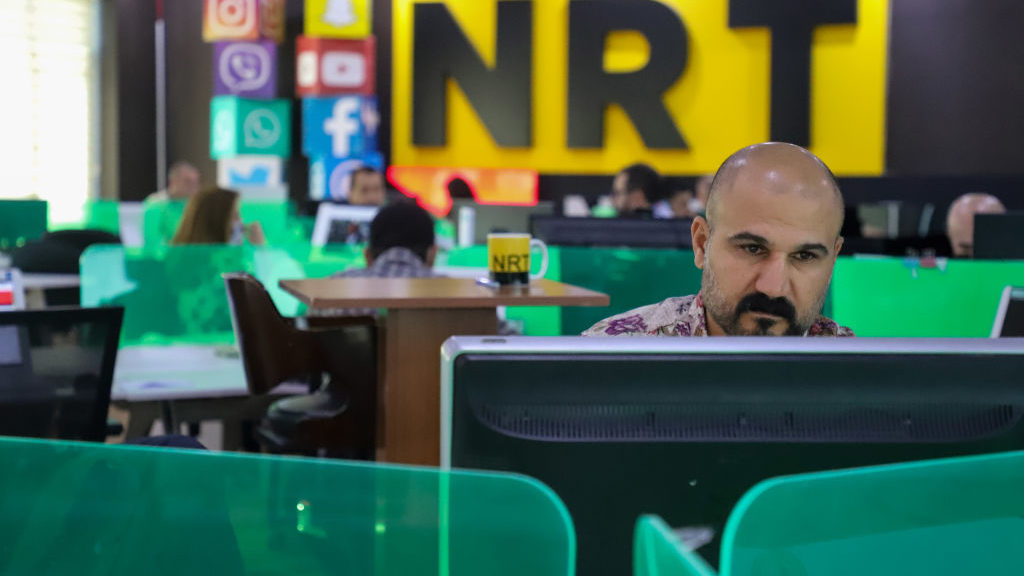Amnesty International Tells Iraqi Kurdistan Leaders to End Clampdown on Activists, Journalists
Human rights NGO says arrests, enforced disappearances on the rise in the autonomous region
Amnesty International has called on local leaders in Iraqi Kurdistan to cease the arrest and enforced disappearance of activists and journalists, which have been rising since March 2020, when there were countrywide demonstrations against mismanagement by authorities in the autonomous region.
“Authorities in the Kurdistan Region of Iraq have launched a chilling crackdown in their efforts to silence critics over the past year. They have rounded up activists and journalists and [are] prosecuting them on trumped-up charges in unfair trials, and harassing or intimidating family members who were kept in the dark about the status of their loved ones,” Lynn Maalouf, the deputy director for Middle East and North Africa at Amnesty International, said in a statement.
Maalouf is talking about journalists such as Surkew Mohammed, owner and editor-in-chief of Peregraf, an independent news outlet covering key regional events in the Kurdish and English languages.
“I have been physically assaulted twice by the ruling parties, and the former deputy speaker of the Iraqi parliament, [Aram Sheikh Mohammed], who is also Kurdish, filed a legal complaint because I published some corruption documents about him,” Surkew Mohammed told The Media Line.
According to Rand Hammoud, a member of Amnesty International’s Iraq research team, at least 100 protesters, activists and journalists were arrested in Kurdistan in 2020, 30 of whom remain in detention – including six who were “forcibly disappeared” for periods of up to three months.
“The Kurdish authorities must put an end to this crackdown and hold perpetrators, including members of the Asayish – the Kurdistan Regional Government’s security and intelligence [agency], and Parastin – the Kurdistan Democratic Party intelligence [service] forces, accountable for the violations committed,” he told The Media Line. “They must also investigate all allegations of torture made, with an aim to provide redress to the victims.”
The Kurdistan Democratic Party is the largest party in Iraqi Kurdistan and the senior partner in the regional government.
“The international community must continue its pressure on the Kurdish authorities to respect the rights of individuals practicing their basic rights,” Hammoud said.
We have seen quite a lot of popular and international mobilization against the repression of freedom of expression in Kurdistan
The government, according to Amnesty International, says its actions are legitimate based essentially on three laws: Law No. 21 (2003) on matters of national security; a defamation law; and a law on the misuse of electronics. These laws contain unclear and sweeping language to describe violations, and contradict international law.
“The laws must include only crimes that are recognized under international law in their provisions, with clear accountability measures in place for perpetrators that do not abide by legal safeguards against such violations,” Hammond said.
The alleged increase in suppression in the Kurdistan Region of Iraq has met with opposition, Hammond said.
“We have seen quite a lot of popular and international mobilization against the repression of freedom of expression in Kurdistan,” he said. “Individuals continue to practice their freedom of expression. However, the atmosphere of fear that is surrounding families of those detained and activists is palpable, as many have fled their areas of origin out of fear of arrest and/or do not speak up about violations they have witnessed out of fear of reprisal.”
Peregraf’s Mohammed is part of what he calls the resistance to the government’s efforts to erase basic civil liberties.
“Journalists and activists inside and outside Kurdistan are constantly putting pressure on the KRG [Kurdistan Regional Government] and the Kurdish authorities to promote and protect rights and freedoms,” he said.
“Kurdish parties and politicians are propagandizing that they have provided such liberties, but the situation has not fundamentally changed,” Mohammed added, saying that intimidation of people expressing points of view contrary to that of their leaders has been commonplace in the Kurdistan Region of Iraq.
“The situation in the Kurdistan Region is not surprising to us in the press, as Kurdish authorities have always put pressure and violations on journalists, independent media and critics,” he said, noting that many in his profession are incarcerated.
He called the arrests part of the “unfair system in Kurdistan that does not fully believe in the rights and freedoms of journalists, especially those who criticize.”


